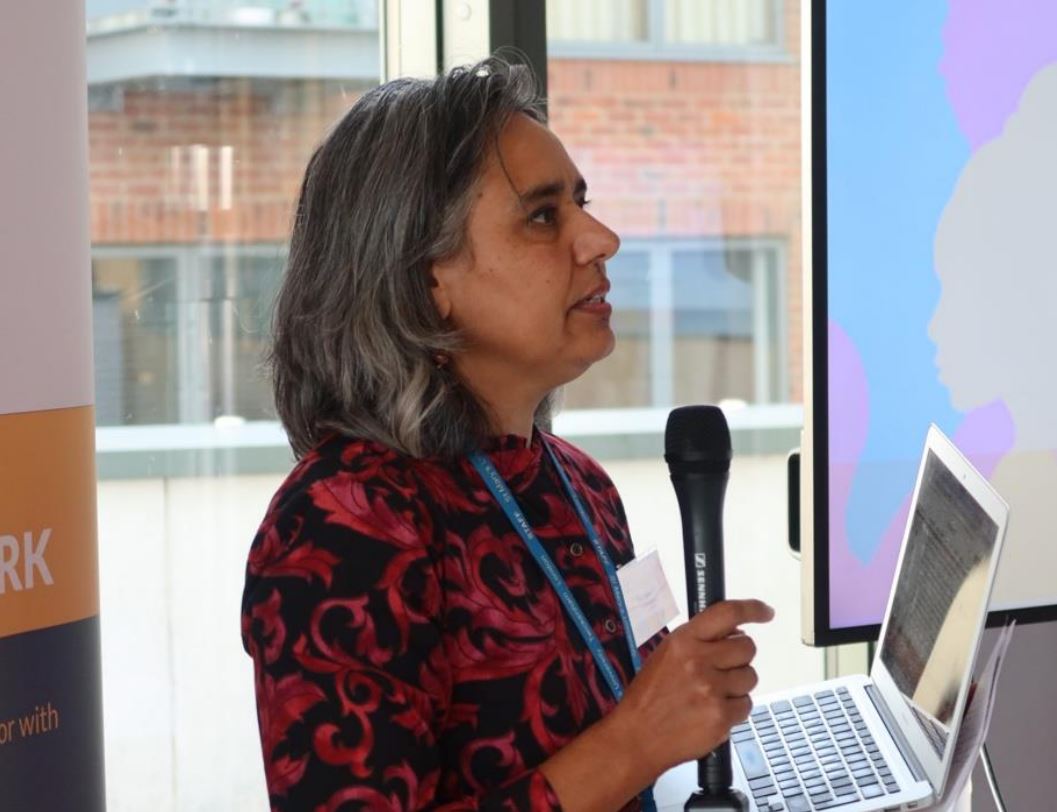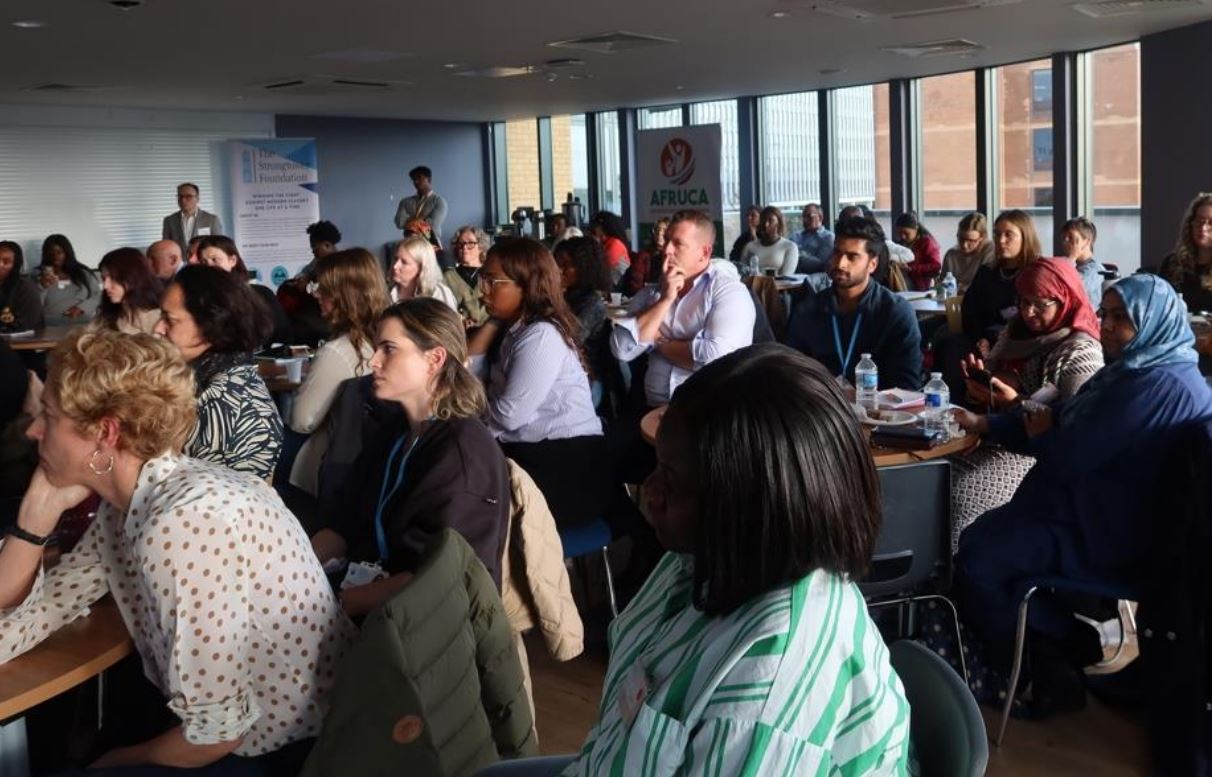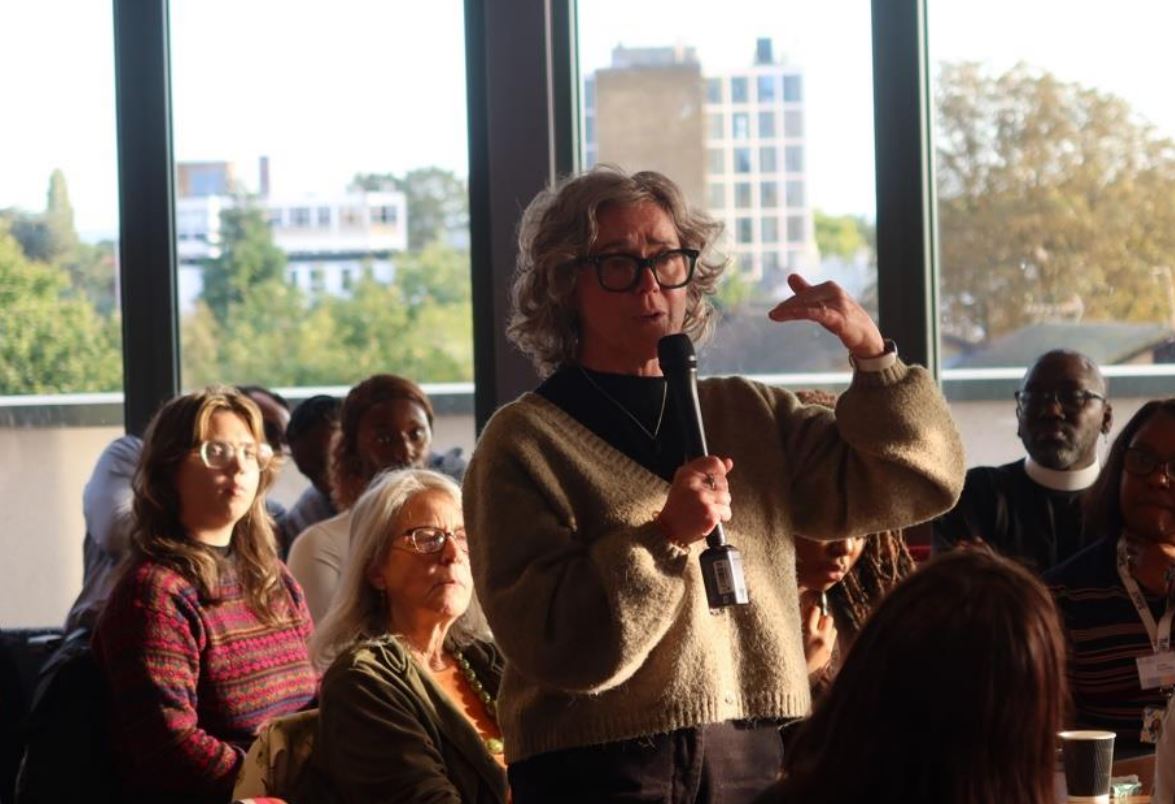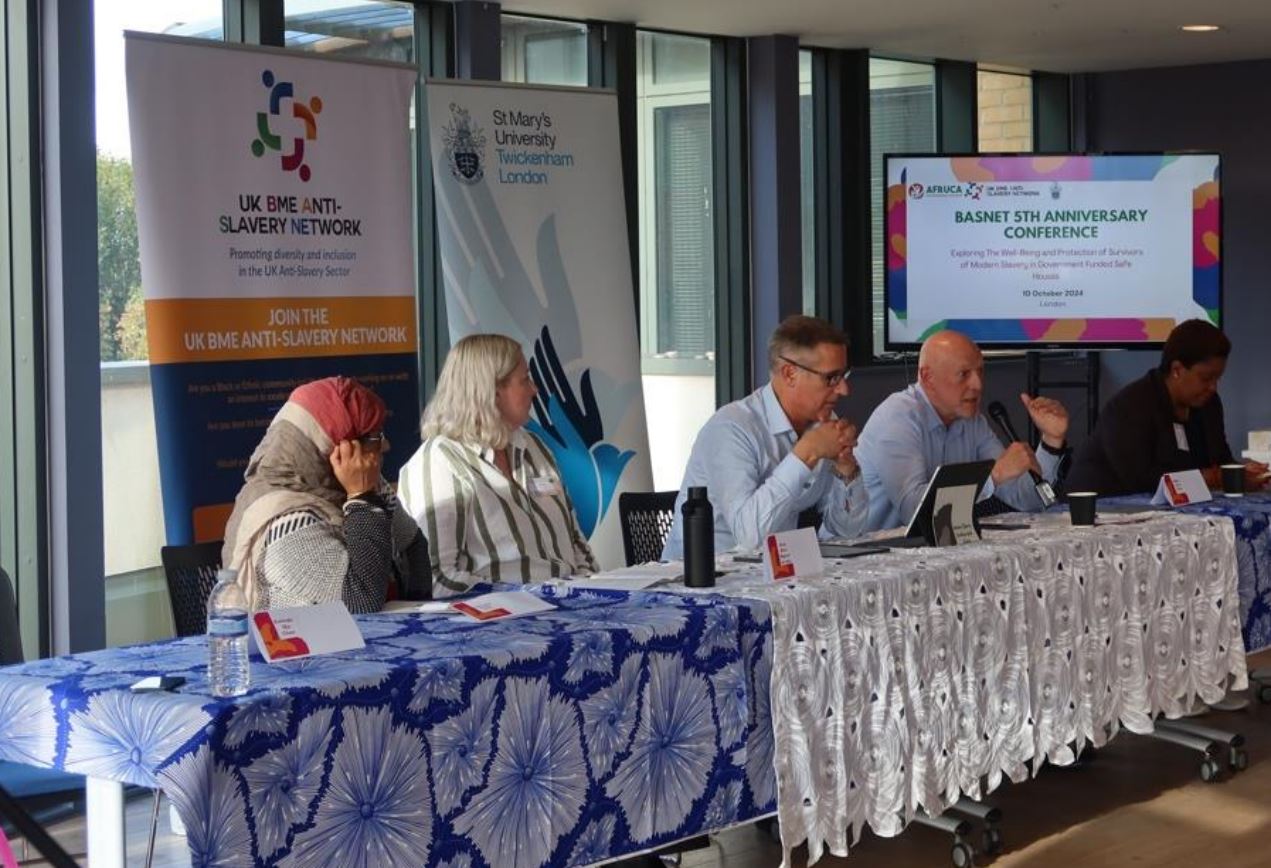The Bakhita Centre for Research on Slavery, Exploitation, and Abuse at St Mary’s University, Twickenham (SMU) has held an event at The Exchange in partnership with the UK BME Anti-Slavery Network (BASNET) and AFRUCA.
Marking anti-slavery week, the half-day conference on October 10th was co-produced with BASNET’s Lived Experience Experts on modern slavery and human trafficking. Discussions at the conference drew upon findings from BASNET’s “Safe House is Not Safe” report and highlighted ongoing racial disparities and systemic barriers preventing survivors from receiving adequate care and protection.
Speaking on the event, Associate Professor Criminology and Criminal Justice at St Mary’s Neena Samota said, "I was delighted to organise this knowledge exchange event with BASNET at The Exchange. We heard from a diversity of voices including lived experience experts, our MA students, practitioners and academics. All made contributions to an important conversation on improving care and protection of survivors in government-funded safe houses.”
Master's students at SMU were able to network and take part in the knowledge exchange. Current MA student Nadine Tuuta said, “I was really pleased to attend the recent BASNET conference. Being of Polynesian Māori descent, and taking the MA course, I came along with the anticipation of learning more about this collective, and its approach to promoting EDI in the UK modern slavery and human trafficking space.
“I was very encouraged to note the BASNET report into Government funded safe houses was informed by a lived experience panel. It spoke to me of the trust built with survivors during consultations, as well as a commitment to a holistic and multi-faceted approach to the findings. With luck, this will result in the Home Office and other key stakeholders taking note and utilising the findings”.
MA student Susanna Raj added, “BASNET's conference opened my eyes to the need for culturally sensitive policies and training that dignify the diverse identities of survivors. From studying sociological theories and policies around the issue of modern slavery, the conference took this off the page, to the real-life obstacles and injustices survivors currently face. The conference put faces and names to my studies, inspiring me even more to engage with my course”.
Expressing the importance of equity, diversity and inclusion, student Jenna Ellis reflected on the importance of building partnerships and networks saying, “As an MA student, attending the conference was a great experience that gave insight not only to the systems that exist to support survivors but also painted a clear picture of the inequities that exist within that cause communal and generational harm.
“By centring survivor and BME voices, BASNET and associated groups painted a picture of the work that still needs to be done in safe houses as well as beyond and how we can move forward together promoting inclusivity, appreciation of diversity and equity.”



